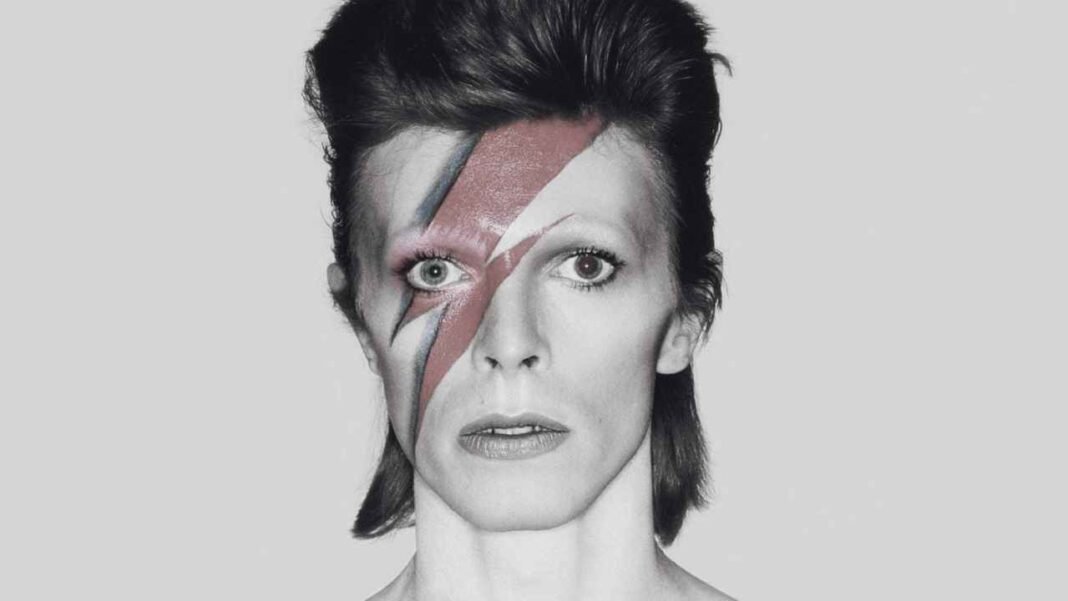David Bowie, whose real name was David Robert Jones, was an English singer-songwriter, actor, and cultural icon. His career lasted six decades and changed what was possible in popular music, performance, and identity.
Bowie is often thought of as one of the most important musicians of the 20th century. He was a master of reinvention, moving easily between musical styles and visual styles while always keeping his unique artistic voice. His work combined rock, pop, soul, electronic, experimental, and theatrical styles to create a body of work that is still fresh and emotionally powerful.
Life in the Beginning
Bowie was born in Brixton, South London, and grew up in Britain after World War II. He was interested in music, art, and performance from a young age. In 1966, he changed his name to “David Bowie” to avoid being confused with Davy Jones of The Monkees. He chose the last name after the American pioneer Jim Bowie and his famous knife.
“Space Oddity,” which came out just a few days before the Apollo 11 moon landing, was his first big hit. The song introduced Major Tom, a made-up astronaut who would show up in many of Bowie’s other songs.
The 1970s: Getting Famous and Always Changing
The Rise and Fall of Ziggy Stardust and the Spiders from Mars, which came out in 1972, made Bowie famous all over the world. As the androgynous, bisexual alien rock star Ziggy Stardust, Bowie combined music, theater, fashion, and science fiction into something completely new. The accompanying tour, with its over-the-top costumes and dramatic staging, changed live shows forever.
He suddenly “killed off” Ziggy in 1973 and then quickly switched to the dark side on Aladdin Sane (1973) and Diamond Dogs (1974). He moved to Los Angeles in 1975 and recorded Young Americans, which included the song “Fame,” which he co-wrote with John Lennon. This was his first US No. 1 single.
Bowie moved to West Berlin with Iggy Pop and Brian Eno in 1976 to get away from drugs and fame. The “Berlin Trilogy”—Low (1977), “Heroes” (1977), and Lodger (1979)—is some of his most daring and important work, mixing ambient, krautrock, and art-rock sounds.
“Heroes” is a song about lovers meeting by the Berlin Wall. It became a lasting anthem of hope and defiance.
Superstardom around the world in the 1980s
Bowie’s biggest commercial success came in the 1980s. Scary Monsters (and Super Creeps) (1980) ended the last decade on a dark, creative high note. Nile Rodgers made the album Let’s Dance (1983), which had smooth, danceable songs like “Let’s Dance,” “Modern Love,” and “China Girl.” The Serious Moonlight Tour that went along with it made Bowie one of the biggest live acts in the world.
Later in the decade, he helped start the hard-rock band Tin Machine and kept acting, most famously as Jareth the Goblin King in Jim Henson’s Labyrinth (1986).
1990s to 2010s: Trying new things, rumors of retirement, and the last great works
In the 1990s, he tried out a lot of different things. For example, he made industrial music with Tin Machine, drum-and-bass and electronica music with Earthling (1997), and reflective music with Hours… (1999). He came back to songwriting in 2002 with Heathen and 2003 with Reality, both of which were well-received by critics.
Bowie mostly stayed out of the public eye after having a heart attack on stage in 2004, which led to ten years of speculation about his retirement. On his 66th birthday in 2013, he surprised everyone by releasing The Next Day, a powerful comeback that reached No. 1 in many countries.
He released his last album, Blackstar, on January 8, 2016, which was his 69th birthday and just two days before he died of liver cancer, which he had kept secret. Blackstar is now widely thought to be one of the best farewell songs in popular music. It’s a haunting, jazz-influenced meditation on death.
Career as an actor
Bowie was a great actor in addition to being a great musician. Some of his most famous roles are as the alien Thomas Jerome Newton in Nicolas Roeg’s The Man Who Fell to Earth (1976), the vampire John Blaylock in The Hunger (1983), Pontius Pilate in Martin Scorsese’s The Last Temptation of Christ (1988), Andy Warhol in Basquiat (1996), and Nikola Tesla in The Prestige (2006).
Heritage
It is thought that David Bowie sold 140 million records around the world. In 1996, he was inducted into the Rock and Roll Hall of Fame, and after he died, he got a Grammy Lifetime Achievement Award.
His impact goes beyond music to include fashion, sexual identity, performance art, and even the idea of what a pop star could be. Many artists, including Madonna, Lady Gaga, Kanye West, Arcade Fire, and Lorde, have said that he was a big influence on them.
Bowie taught generations that identity is not fixed, that changing who you are is a sign of strength, and that art can be both deeply personal and universally powerful.
Two days after the release of Blackstar, David Bowie died in New York City on January 10, 2016. The world lost a unique genius, but his music and spirit live on in the minds of everyone he touched. As he sang in “Heroes”:


